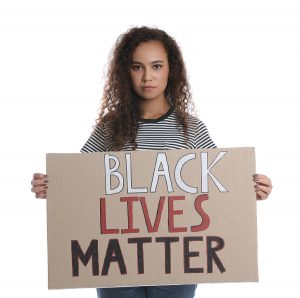 A recent opinion by New Jersey’s Appellate Division finds that an employee cannot bring a retaliation claim against a private employer for firing her for posting racially insensitive statements on Facebook.
A recent opinion by New Jersey’s Appellate Division finds that an employee cannot bring a retaliation claim against a private employer for firing her for posting racially insensitive statements on Facebook.
Heather J. McVey was a Corporate Director of Customer Service for AtlantiCare Medical System Incorporated and Geisinger Health System Incorporated. Ms. McVey was an employee at-will, meaning AtlantiCare had the right to fire her for any reason, or for no reason at all, as long as it did not violate the law.
During the protests following the murder of George Floyd, Ms. McVey engaged in a discussion on Facebook about the Black Lives Matter movement. She expressed her opinion that Black Lives Matter is “racist” and “causes segregation,” and that Black citizens were “not dying” but rather “killing themselves.” Ms. McVey identified herself on her Facebook profile as a Corporate Director at AtlantiCare.
AtlantiCare has a Social Media policy which encourages its employees to communicate through social media. That policy makes it clear that, while employees should not be “afraid to be yourself,” they must “do so respectfully,” including by avoiding behavior such as “ethnic slurs, personal insults, obscenity” or “topics that may be considered objectionable or inflammatory – such as politics and religion.”
When it discovered her postings about Black Lives Matter on Facebook, AtlantiCare suspended McVey. Less than one week later, following an investigation, the company fired her.
Ms. McVey filed a lawsuit against AtlantiCare in which she claimed the company had wrongfully discharge her in violation of the public policy set forth in the free speech clause of the First Amendment to the United States Constitution and a similar provision in the New Jersey Constitution.
The trial court dismissed Ms. McVey’s lawsuit on the basis that the Constitutional right to freedom of speech apply to actions by the government, but do not apply to private employers. Ms. McVey appealed.
On May 20, 2022, in the published opinion of McVey v. AtlantiCare Medical System Inc., the Appellate Division affirmed the dismissal of Ms. McVey’s lawsuit. It explained that, to establish a claim of wrongful discharge in violation of public policy, an employee has to identify a clear mandate of public policy that prohibits the termination. However, it agreed with the lower court that the free speech provisions of the First Amendment and the New Jersey Constitution do not create any such mandate with respect to private employers like AtlantiCare.
The appellate court further noted that, even if Ms. McVey had worked for the government and been protected by the First Amendment, it still would have dismissed her case because racist remarks are not protected free speech and her comments on Facebook “crossed that line.” In other words, it concluded that calling Black Lives Matter “racist,” saying it “causes segregation,” and asserting that Black citizens were “killing themselves” is racist and thus cannot be a protected exercise of the right to free speech.
The Appellate Division also ruled that, even if Ms. McVey’s statements were not racist, at the very least they were racially insensitive and violated AtlantiCare’s social media policy prohibiting posting about “objectionable or inflammatory” topics.
 New Jersey Employment Lawyer Blog
New Jersey Employment Lawyer Blog

